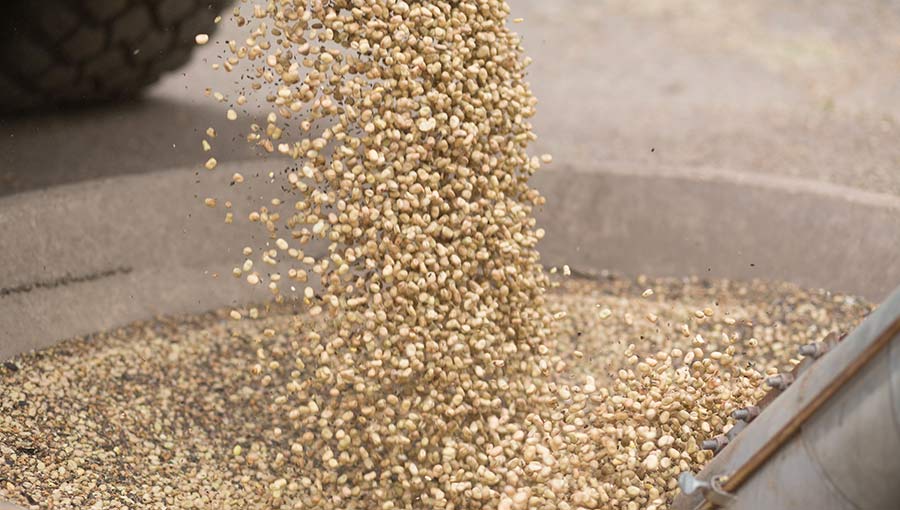Strong export demand causes surge in feed bean price
 © Tim Scrivener
© Tim Scrivener Bean growers with stock to sell are likely to benefit from having held on to supplies as prices have risen sharply in the past two weeks.
Feed beans now stand at £230/t (23 January), up from £225/t two weeks ago as strong European demand for scarce supplies drives prices higher.
Supplies of the crop are now trading at £85/t higher than at this time last year.
See also: Why prospects are looking up for peas and beans in 2019
Harvest 2018 crop yields were hit as spring-planted crops went in late after the effect of the Beast from the East storm and then were subjected to the summer drought.
This has also affected the availability of crops of the best quality, which are in demand for export for human consumption as well as for planting the 2019 crop.
Short supplies
PGRO chief executive Roger Vickers said: “Whether peas or beans, there now appears to be little open market crop of good quality available for new trades.
“The European market for vegetable protein continues to be strong and indications are that this strength is a long-term trend.”
Openfield pulse trader Andrew Little said there was very little trade coming forward at the moment with the rising market, although he expects supplies to increase in the next month as farmers clear out sheds ahead of fertiliser deliveries.
Trade was being underpinned by strong export demand, he said, with very little going to any UK feed manufacturers as these have all switched over to cheaper supplies of imported peas.
Feed beans typically trade at a premium over feed wheat of £30-£40/t, but current market prices now stand more than £60 apart.
The higher price and spread is likely to cause increased interest in the crop among growers pondering their spring crop selection, particularly those with failed oilseed rape crops to pull up.
Some of the seed shortage for spring planting has been alleviated by additional imports, and a derogation has also been granted to lower the customary germination rate from 80% to 70%.
See also: Two imported spring bean varieties for farmers to consider
The PGRO and Pulses UK report that feed bean contracts are currently being offered with a premium over November wheat of around £35/t, making beans worth approximately £192/t ex-farm.
Beans that have bruchid beetle damage of 5% or below, meeting the human consumption criteria, are trading at £30/t over feed, putting them at around £222/t ex-farm.
Star performer
The recent price rises are all the more impressive as they come against a backdrop of other arable commodity prices stagnating or falling.
This is primarily because the rising value of the pound is making UK exports less competitive despite rising global prices.
Sterling hit a two-month high against the euro this week, which has knocked ex-farm prices for feed wheat back by just over £2/t to £167.20/t and oilseed rape back to £317.70/t, down from £319/t between 16 January and 23 January.
Prices for forward-sold wheat from harvest 2019 have also trended lower amid speculation that next season’s crop is likely to be significantly higher as more has been planted.
The market for November 2019 wheat currently stands at about £155/t (24 January), back from £162/t at the start of the year.
